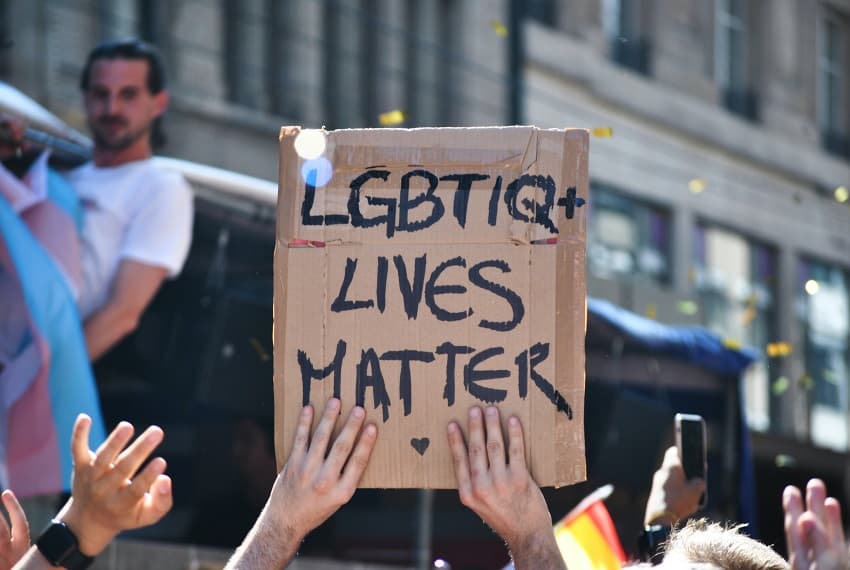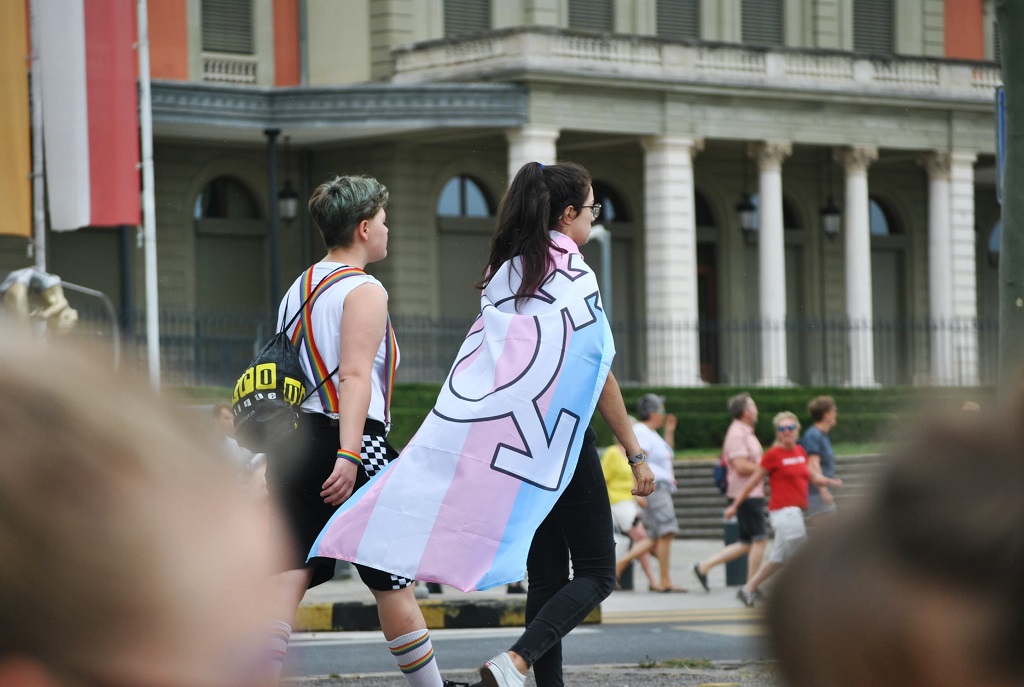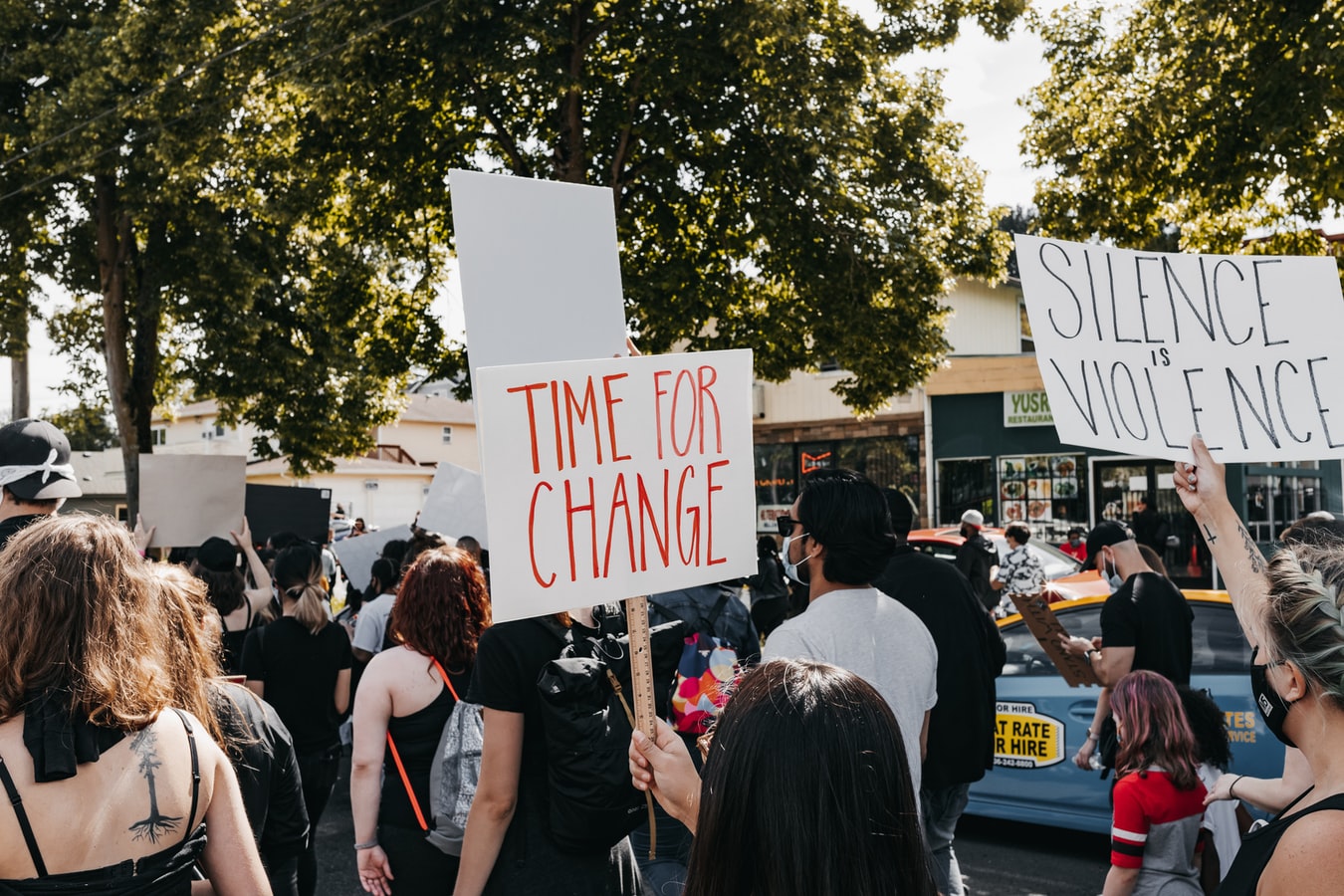The demonization of ‘gender ideology’ has become a key rhetorical tool in the construction of a new conception of ‘common sense’ for a wide audience.
It is simplistic to believe that Kaczynski, Orbán, and Trump have risen to power simply by tapping into a ubiquitous and deeply engrained hatred of women and homosexuals. Rather, for many voters, equality politics, both in the narrow sense of policies aimed at eradicating various forms of inequality and as a symbol of a positive, progressive vision of the future, have come to signify everything that is wrong with the current state of politics.
Gender politics has played a crucial role in establishing this new mode of governance, yet not quite in the way previous analyses have suggested.
The emergence of “gender ideology” as an enemy figure
In recent years numerous countries across the globe have witnessed the emergence of powerful, transnational social movements mobilizing against an enemy known as ‘gender ideology’, and ‘cultural Marxism’, in much of the Western world, ‘Gayropa’ in post-Soviet countries or ‘political correctness’ in the American context.
These movements have successfully mobilized people against various human rights and equality issues such as women’s reproductive rights, LGBTQ issues, gender equality policies and gender mainstreaming, sexual education, gender studies as an academic field, and political correctness. At the peak of those campaigns, it was not uncommon for ‘gender ideology’ or political correctness to be portrayed as the new incarnation of Nazism and Leninism (Polish MP Beata Kempa), bemoaned for enslaving the people (Ukrainian Archbishop Sviatoslav Shevchuk), presented as a threat to children comparable to pedophilia (Slovak MP Pavol Gorisak), or blamed for turning American campuses into ‘ivy-covered North Koreas’ (American public intellectual William Lind).

The visibility of ‘gender talk’ in political discourse has created a novel situation for the gender studies scholars and activists who have, for decades, complained about ghettoization. Perceived as marginal, their critical perspective was not present in other disciplines, their departments or programs were relegated to campus cellars or attics, and their policy goals were underfinanced and pushed to the back of party manifestos.
With the current illiberal populist offensive pushing for a paradigm shift, this situation has changed fundamentally. The term ‘gender’ is now often used by the Right to mobilize supporters against (neo)liberal democracy. Because of the centrality of the concepts of gender and equality to these illiberal movements, many political commentators treated them as a problem in itself; understanding such rhetoric as a backlash against emancipatory politics, a mobilization of fundamentalists against the achievements of feminism and sexual minority rights, and an outbreak of hidden hatred towards women. However, we believe that this is not quite the case.
For illiberal populist forces, we argue, the concept of ‘gender ideology’ has become a metaphor for the insecurity and unfairness produced by the current socioeconomic order.
Gender as ‘symbolic glue’
In order to understand this phenomenon, and to highlight the crucial role played by gender politics in the current paradigm change, we have introduced the notion of gender as ‘symbolic glue’.
This metaphor has enabled them to tap into people’s feelings about the world around them, and direct them towards equality issues. This has been done in a number of ways.
Firstly, in constructing a dynamic within which the notion of ‘gender’ is perceived as a threatening concept the right has united separate contested issues attributed to the progressive agenda under one umbrella term. ‘Gender ideology’ has come to signify the failure of democratic representation, and opposition to this ideology has become a means of rejecting different facets of the current socioeconomic order, from the prioritization of identity politics over material issues, and the weakening of people’s social, cultural and political security, to the detachment of social and political elites and the influence of transnational institutions and the global economy on nation-states.
RELATED ARTICLES: What the ReOpen Protests Reveal About White Masculinity |From Incels to Tradwives: Understanding The Spectrum Of Gender And Online Extremism |UN report reveals gender inequality still a problem |Facing climate change in Honduras: The importance of gender equity |How Big Data Can Help Achieve Global Gender Equality |Is Gender Equality… |
Secondly, the demonization of ‘gender ideology’ has become a key rhetorical tool in the construction of a new conception of ‘common sense’ for a wide audience; a form of consensus about what is normal and legitimate. It is important to note that social mobilization which is based on an opposition to ‘gender ideology’ and political correctness does not just demonize the worldview of their adversaries, and reject the human rights paradigm which has long been the object of relative consensus in Europe and North America.
Instead, they offer a liveable and viable alternative centered on family, nation, religious values and freedom of speech, one which is attractive because it rests on positive identification of an individual’s own choice, and one that promises a safe and secure community as a remedy to individualism and atomization.
Thirdly, opposition to ‘gender politics’ and ‘cultural Marxism’ has also allowed the Right to create broad alliances and unite various actors that have not, necessarily, been eager to cooperate in the past: different Christian Churches, orthodox Jews, fundamentalist Muslims, mainstream conservatives, far-right parties, fundamentalist groups and in some countries even football hooligans.
We must acknowledge that the growing popular support for the illiberal vision stems from the very real failures of progressive politics.
Taking critique seriously
It is clear that the success of the illiberal populist revolution, which uses the rhetoric of gender equality as ‘symbolic glue’, cannot be understood purely as the effect of an influential discourse and clever political mobilization strategy. It has a long history and it is a re-emergence of the ‘dark legacy’ of exclusionary and marginalizing ideologies and practices in Europe which the post-1945 liberal world order had hoped to tame forever. Yet while Rome is burning, progressive politics needs to recognize that there is, indeed, a fire.
One way to break out of the business-as-usual deadlock is to take the criticism of the new populist Right seriously and to acknowledge that, while these actors often offer the wrong solutions, they also, in exposing undelivered promises of equality and representation, uncover pertinent issues which resonate with the public.
However, self-criticism on the Left has been possible only within the limited framework of commonly shared dogmas, such as the established narratives of linear progress and raising public consciousness, and, as such, many progressive thinkers have not dared to pose these questions.

Rita Felski argued already in 1995 that in seeing itself as the vanguard of modernity, rising above the as-yet-unawakened masses, the women’s movement has itself become a prisoner of progress. The extent to which liberal ideas have become entrenched in the value-laden notion of linear progress is especially problematic today when the lived experience of precariousness and insecurity continue to contradict this promise.
This entrenched position also carries the risk of false consciousness and the binary classification of people as being on the right or wrong side of history, creating false, value-based dichotomies (either for or against equality). And not only this dichotomy is false but it has been exploited by the Right more successfully than by so-called progressive actors.
One of the issues critically addressed by anti-‘gender ideology’, or anti-PC, forces, and closely connected to this legacy of the Enlightenment, is the technocratic and depoliticized character of equality politics. This is the price this politics of emancipation has paid for its academic institutionalization. When equality is addressed in the language of policy, it is presented as a depoliticized issue, requiring expert knowledge and evidence-based solutions, rather than as values worth fighting for, or a political matter susceptible to debate. To some extent, this depoliticization also takes place when issues of equality are formulated in a rights-based language or identity politics framework. Here, too, issues are often rendered apolitical, presented as a matter of inherent right or personal identity that cannot be disputed outside the given framework.
This labeling is a reaction that stems from the conviction that opposition could be halted if only people better understood ‘what gender is really about’, or were more accepting of the complexities of human sexuality. Illiberal populist mobilization can thus be understood as an attack on the ‘enlightened’ attitude and a disenchantment with mainstream politics in a Weberian sense, a reaction to the assumed authority of experts, and to the decontextualized language of politics which increasingly fails to measure up to the people’s experience addressing their concerns in an appealing language, and with the promise of substantive change.

Another contested issue has often been framed as ‘elitism’ by its critics and concerns the perception that certain social groups benefitted from equality politics more than others. Many authors have noted that the way in which struggles for social justice have shifted their focus from a more materialist paradigm to recognition and representation (including fighting the glass ceiling or improving the depiction of women in the media) have turned some feminists into the ‘handmaidens of neoliberalism’ and, at the same time, the voice of a privileged minority.
This shift has largely rendered these movements blind to their own entanglement in neoliberal logic. In this framework, the representation and recognition of oppressed minorities, the simplistic creation of more categories seemingly liberating us from the ‘gender cage’, has become a focus. At the same time, it has become ever more difficult to question the ways in which oppression operates in the current socio-economic order and how the structural sources of inequality can be eradicated.
The labelling of opponents of liberal politics as ‘backward’, ‘biased’ and ‘sexist’, is one obvious consequence of these approaches.
The need for self-critical imagination
This saturation of public discussions with distorted visions of equality politics by right-wing populists, and the exploitation of misconceptions of the term ‘gender’ in illiberal political mobilizations, demands a new, self-critical strategy on the part of gender scholars and activists, as well as left-leaning political parties.
The progressive agenda must extend beyond narratives of identity and representation and into structural critique as well as reflect on the extent to which it is embedded in the neoliberal order. There is a pressing need to address issues such as economic inequalities, shrinkage of the state, the precarity of work, or privatization of care, all of which have their gendered consequences that cannot be addressed effectively within the framework of recognition and representation alone.
If progressives do not take them seriously, these structural issues which were on the agenda of previous feminist movements will come to be addressed by the illiberal populist Right in the form of exclusionary and fear-mongering policies in order to attract wider support. It is time to revive the structural critique because Rome really is burning and the time for fiddling is over.
This article was created as part of the Network 4 Debate project. The full and original version of it can be found here.
Editor’s Note: The opinions expressed here by Impakter.com columnists are their own, not those of Impakter.com.










